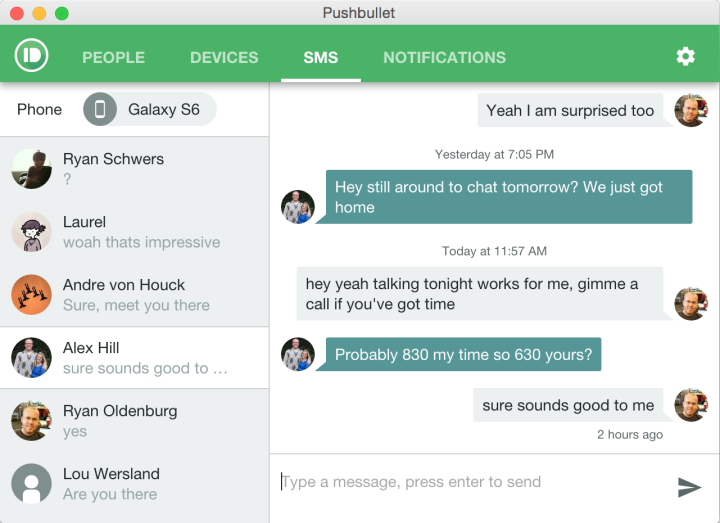
Messaging isn’t exactly new to PushBullet, but in previous versions of the app wasn’t integrated natively — you had to rely on third-party apps like Hangouts to send texts. Now, everything’s handled within the PushBullet ecosystem, which confers the benefit of your phone’s number and cellular connection. (PushBullet notes that standard messaging rates apply.)
The new feature, in practice, is much like Apple’s Continuity. Click on one of your contacts and you’ll see a chronological list of messages you’ve sent and received. Texting couldn’t be simpler: ensure your phone has an Internet connection, type your message, and hit “send.”
The feature isn’t quite as holistic as you’d hope. It doesn’t support multimedia messages (i.e., pic and video texting), and is limited to Android for now. PushBullet’s hopeful it can overcome that latter limitation, but says iOS support is basically incumbent on Apple. “At this point we don’t have access to SMS on the device,” CEO Ryan Oldenburg told The Verge. “We’re always watching Apple updates for new APIs and functionality though, so if this ever changes, we will be on it right away.”
If you’ve got an Android phone and an SMS plan, you can test drive the feature by downloading the PushBullet app and the complimentary Chrome extension or Windows program. The new SMS messaging may not be robust as services like MightyText, but considering the breadth of PushBullet’s functionality, it’s hard to criticize too harshly.

